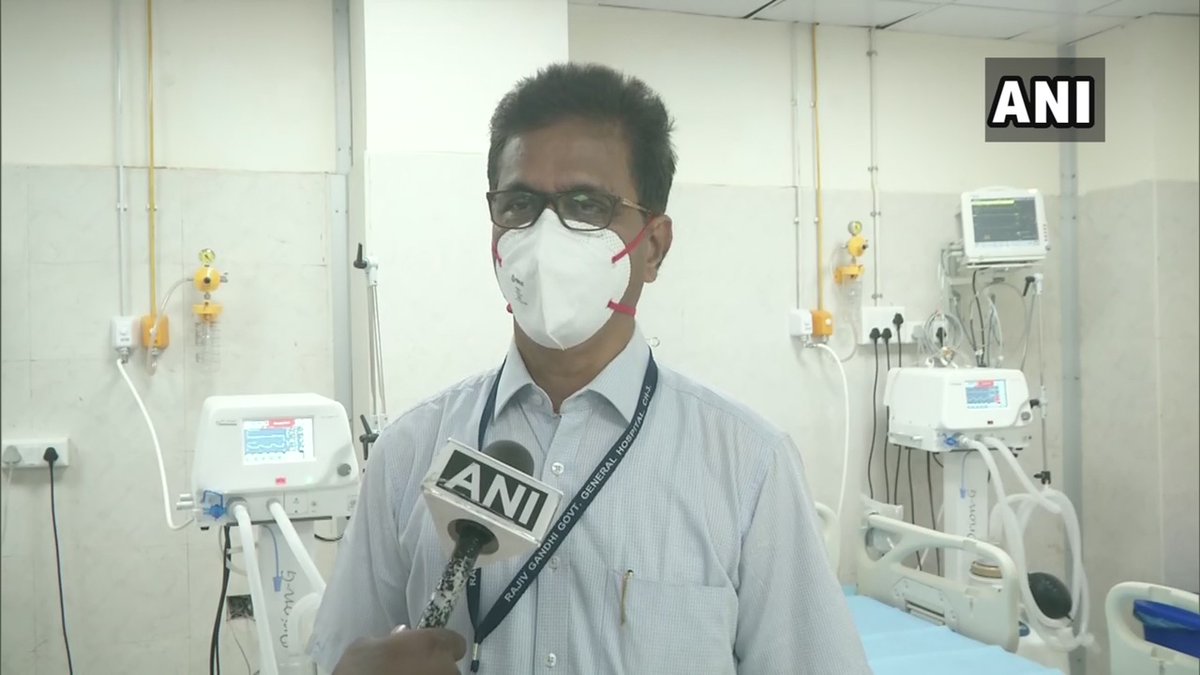New Delhi: Amid the rising number of coronavirus cases, the demand for critical medical equipment like ventilators is rising again. The manufacturers of ventilators are again looking towards gains after weeks of distress.
As per reports, before the pandemic, the sector had a capacity to supply over 3,000 ventilators annually. But the crisis led to the rise in the manufacturing capacity of 396,260 a year.
Ashok Patel, Founder CEO, Max Ventilator, told The Sunday Guardian: “In the current situation, the demand has increased. In fact, since this resurgence of cases, Max Ventilator has already seen a nearly 40% jump in demand for critical care ICU ventilators. In the past month alone, we have sold as many as 105 ventilators.”
Industry experts maintain that with the second wave of Covid-19 seemingly ready to swamp and test the Indian healthcare infrastructure again, just like last year, the requirement for critical ventilator machines is set to shoot up once again.
However, other forms of oxygen therapy where no incubation is required which have been life-savers during the pandemic, are now gaining popularity. This had also led to the decline in the sales of critical medical equipment like ventilators.
“Even as we are confronted with the onset of a second wave, various modes of oxygen therapy are being tried to address the breathing needs of Covid patients too. And in several cases, they are proving to be successful in the treatment of patients. However other than an oxygen concentrator which is a non-invasive mode of supplying oxygen to a patient, even CPAP and BiPAP are essentially mechanical ventilators only. The only difference is that they are non-invasive modes of providing mechanical ventilation. And don’t forget that since CPAP and BiPAP devices can be upgraded through a software upgrade and hardware additions, they can again be used as regular ICU ventilators in hospital settings even post-Covid. So, I am not sure that a rise in demand for non-invasive modes of ventilators automatically implies that ventilator manufacturers will not be able to recover from the financial losses,” Patel said.
He also said while the temporary fall in demand could be attributed to falling cases, demand for ventilators as such will never really go away in the long run, regardless of Covid-19 being present or not.
“New ventilator makers with lack of well-oiled sales and distribution infrastructure coupled with lack of sufficient market exposure may have faced overstocking and overcapacity. Also, since most Covid-driven ventilators were made in a hurry with the sole focus on Covid cases, the absence of versatility in their features has proved to be burdensome for many ventilator makers. So, although, unfortunately, the Covid cases are rising again, those companies, too, should be able to recover. To what extent they will be able to recover, that is something I can’t comment on now,” he added.
Experts have also pointed out that although the second wave has hit more states and regions, maximum demand has come from states such as Maharashtra, Gujarat, and Punjab so far.
Maharashtra has seen an increase of about 50%, while Gujarat has seen a 35% of spike and Punjab is the lowest of all three with a 15% demand increase.
“While a resurgence in cases, albeit unfortunate, may help those who are facing a financial crisis, I am also sure that they have their backup plans and strategies to tide over their losses. The government could also step in by way of restriction of imported ventilators into the country which would also catalyze the ongoing Atmanirbhar drive,” he added.

